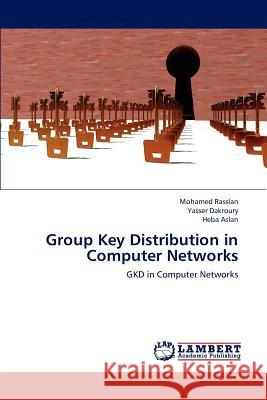Group Key Distribution in Computer Networks » książka
Group Key Distribution in Computer Networks
ISBN-13: 9783659224928 / Angielski / Miękka / 2012 / 212 str.
This book presents a new protocol for a scalable multicast key distribution protocol. The proposed protocol is based on Key Management using Boolean Function Minimization (KM-BFM) technique. It is considered one of the best solutions proposed for solving the scalability of multicast security protocols depending on a centralized manager. Instead of using one tree as in KM-BFM, the members are divided into a number of subgroup trees. The comparison of the proposed protocol with KM-BFM protocol shows that the proposed protocol achieves a lower storage at both the group manager and the group members compared to KM-BFM protocol. Also, it achieves a lower communication overhead in case of a single member leave and a comparable communication overhead in case of multiple leaves. Furthermore, the probability of conducting a successful collusion attack in the proposed protocol is less than that proposed in KM-BFM protocol. This is due to the fact that, in the proposed protocol, each member knows less number of keys than in KM-BFM protocol.
This book presents a new protocol for a scalable multicast key distribution protocol. The proposed protocol is based on Key Management using Boolean Function Minimization (KM-BFM) technique. It is considered one of the best solutions proposed for solving the scalability of multicast security protocols depending on a centralized manager. Instead of using one tree as in KM-BFM, the members are divided into a number of subgroup trees. The comparison of the proposed protocol with KM-BFM protocol shows that the proposed protocol achieves a lower storage at both the group manager and the group members compared to KM-BFM protocol. Also, it achieves a lower communication overhead in case of a single member leave and a comparable communication overhead in case of multiple leaves. Furthermore, the probability of conducting a successful collusion attack in the proposed protocol is less than that proposed in KM-BFM protocol. This is due to the fact that, in the proposed protocol, each member knows less number of keys than in KM-BFM protocol.











